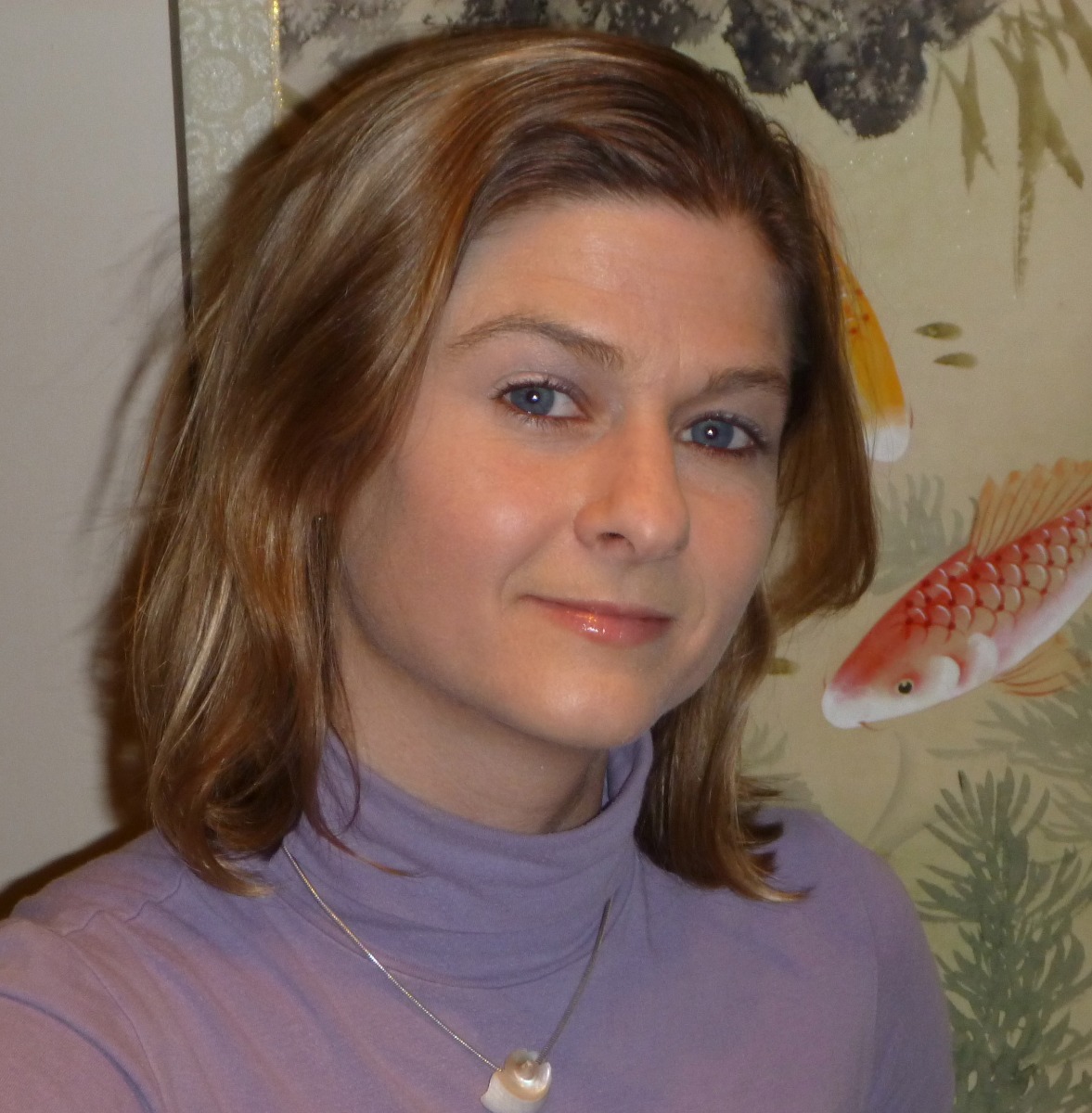China Diary April 2011: Visiting Mayway in Anguo
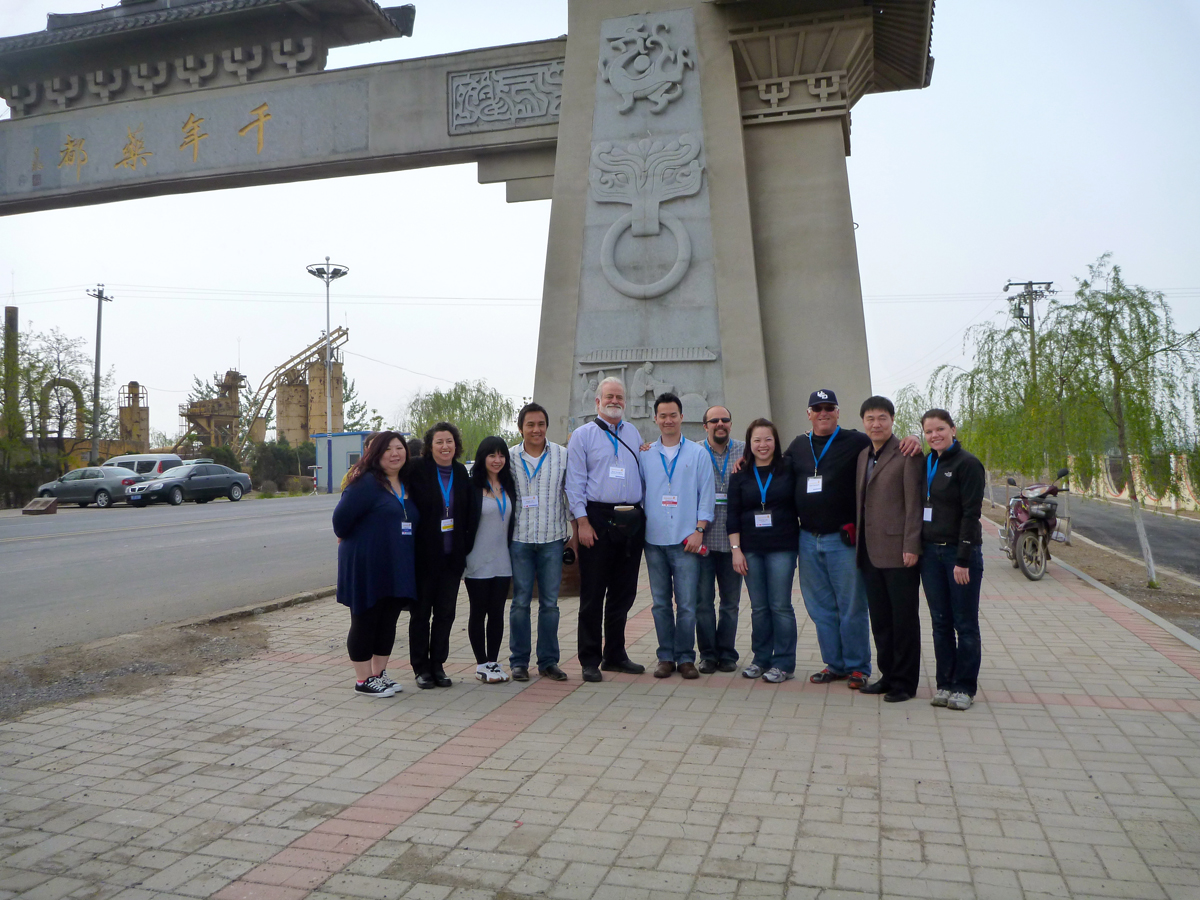
Day 1: My first week in China, before our visit to Anguo, I stayed in a Hutong, an alley or backstreet in a traditional guesthouse and hired a proper Beijing bike. The day of the tour to Anguo I checked out, dropped off my bike and headed from the hot, dusty, chaotic yang of Beijing to the cool, calm, clean yin of the Sheraton.
We all reported dressed in our finest for the welcome din- ner. A fine occasion with an amazing traditional performer whose changing mask face we could not fathom. Yvonne Lau, the president of Mayway, intro- duced the key play- ers: the Mayway Hebei and Lanzhou Foci staff, as well as Ken Lloyd for Mayway UK. Many key USA employ- ees were also introduced. Yvonne raved about each one as they were introduced, rightly so as I learned, because they were a fabulously friendly, smart and conscientious crew.
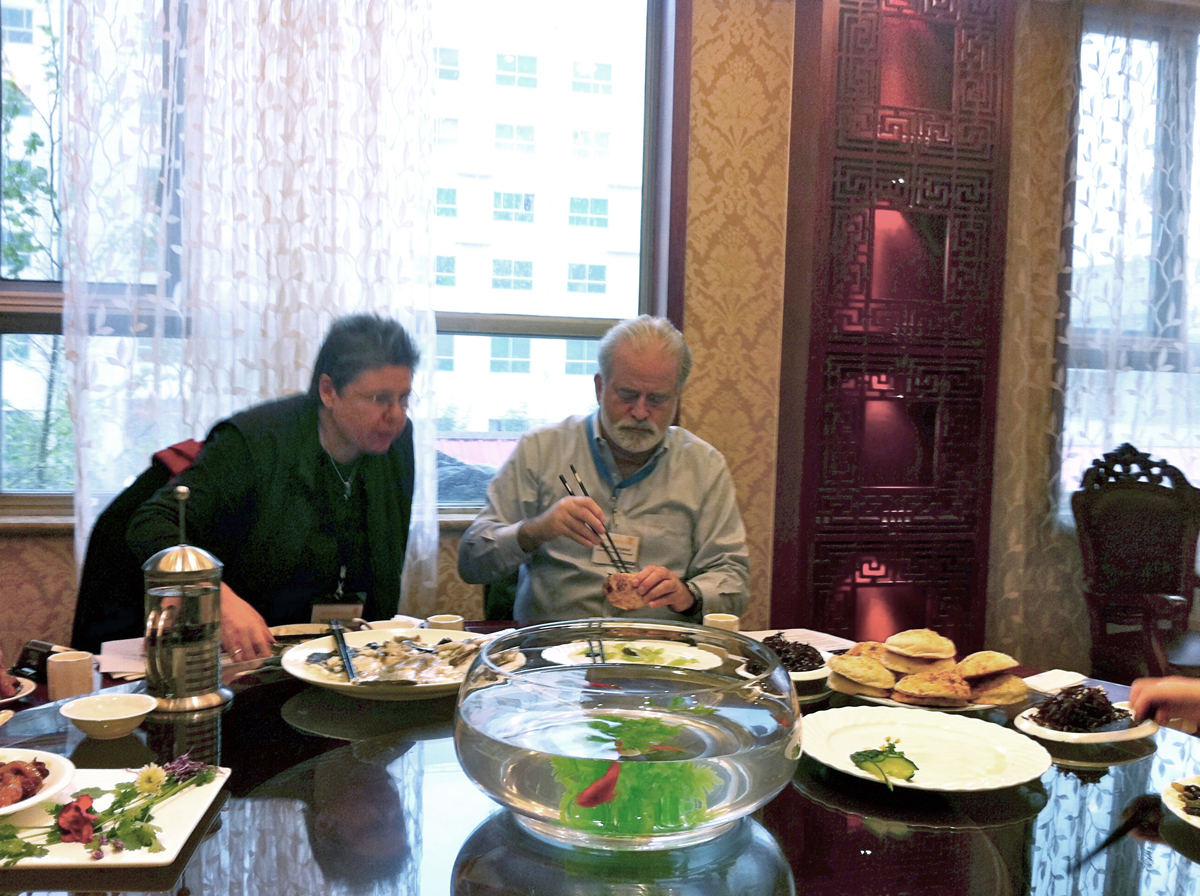
A well-received rest was taken at the Hua Yuan Hotel restaurant whose inauspicious looking exterior was belied by the wonderful lunch we received inside. Here we were treated to the first of our Chinese Herbal Dietary Therapy meals. Oh such delights....Hong Zao and deer tendon; Mai Men Dong and shrimp; Tian Ma and fish; Shan Yao and black wood ear fungus to name just a few. Delicious and informative, each dish came with a description of its therapeutic uses.
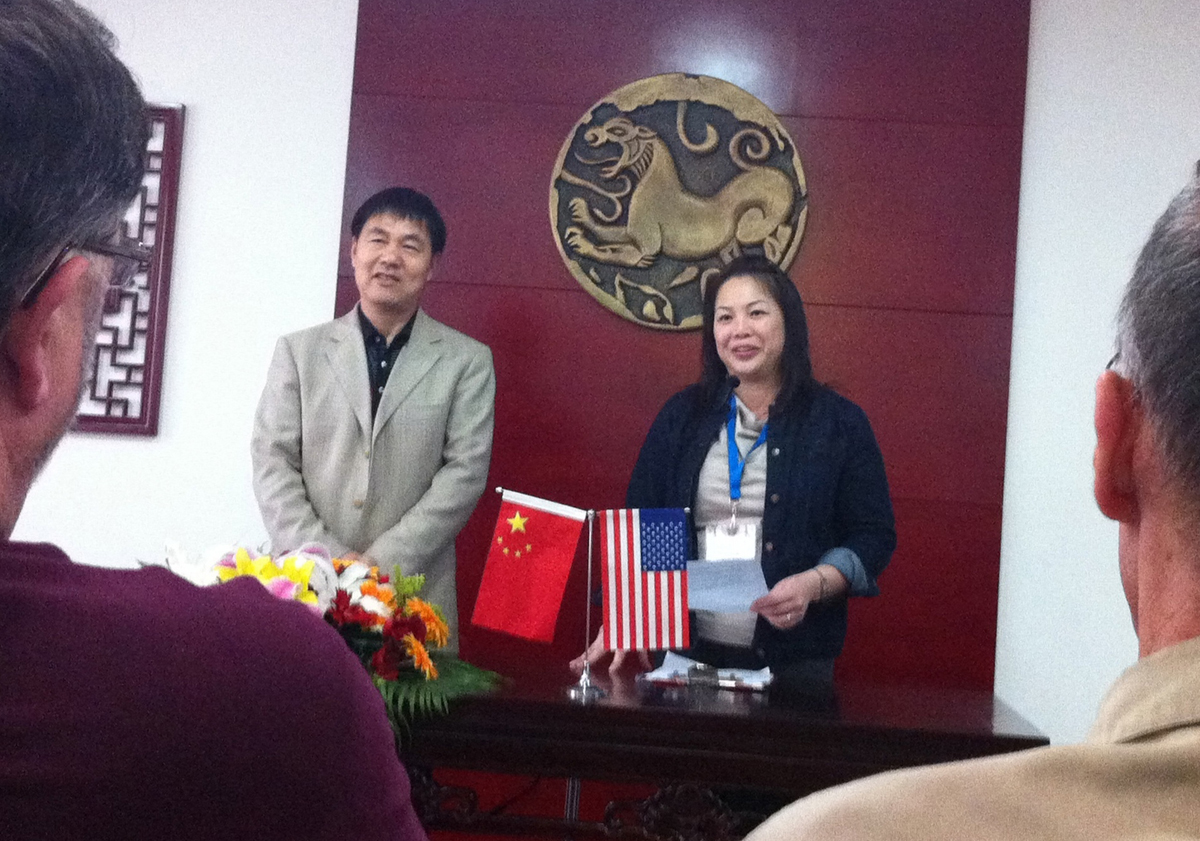
The first big challenge they faced was the common practice of sulfuring herbs--not one they wished to follow. It is unsafe for a small proportion of herbal recipients, but unsafe for all those involved in the processing of the herbs and for the environment. They systematically addressed problems of preserving different herbs without sulfur through the formation of a research committee. This year they received an innovation award for their work with unsulphured Shan Yao.
They address the use of pesticide residues and heavy metals by training growers in Good Agricultural Practices. This was explained in much greater detail on the last day a translation of a report by a consultant to Mayway who is government trained. More on that later.
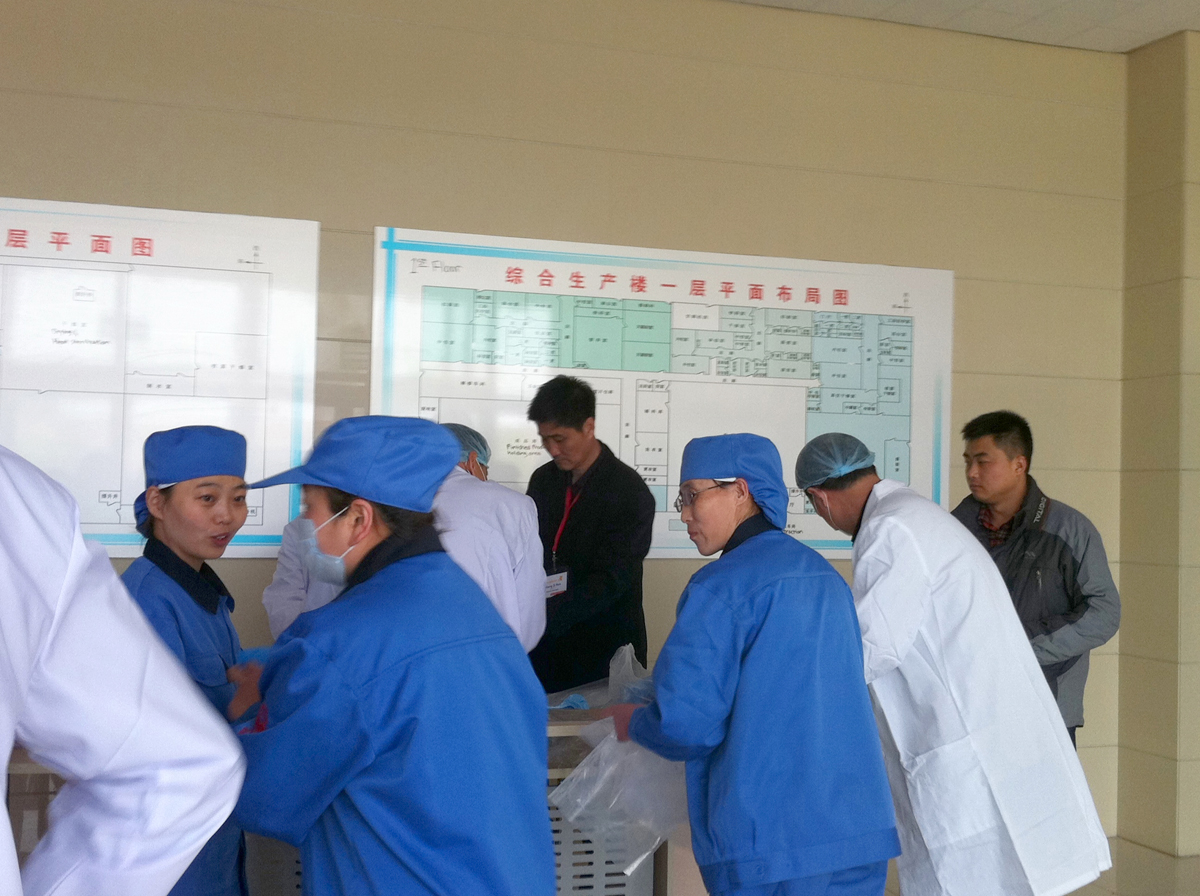
Looking to the future the next goal is organic herbs but this is very difficult at present. A wonderful example given by Yvonne was that of ginseng. She talked to a ginseng farmer and asked if he would grow organically to which he replied if you pay for the crop yield I would get with conventional means I will grow it for you organically. Asked how much the yield might be he replied he did not know but maybe 10%. Yield drops of that scale with increasing demand for a very valuable crop is not a desirable outcome. In truth the benefits/ downfalls of the use of the different pesticides are as yet not wholly resolved. Some are BAD. Some are not. Most lie on the continuum. That is a whole big subject!
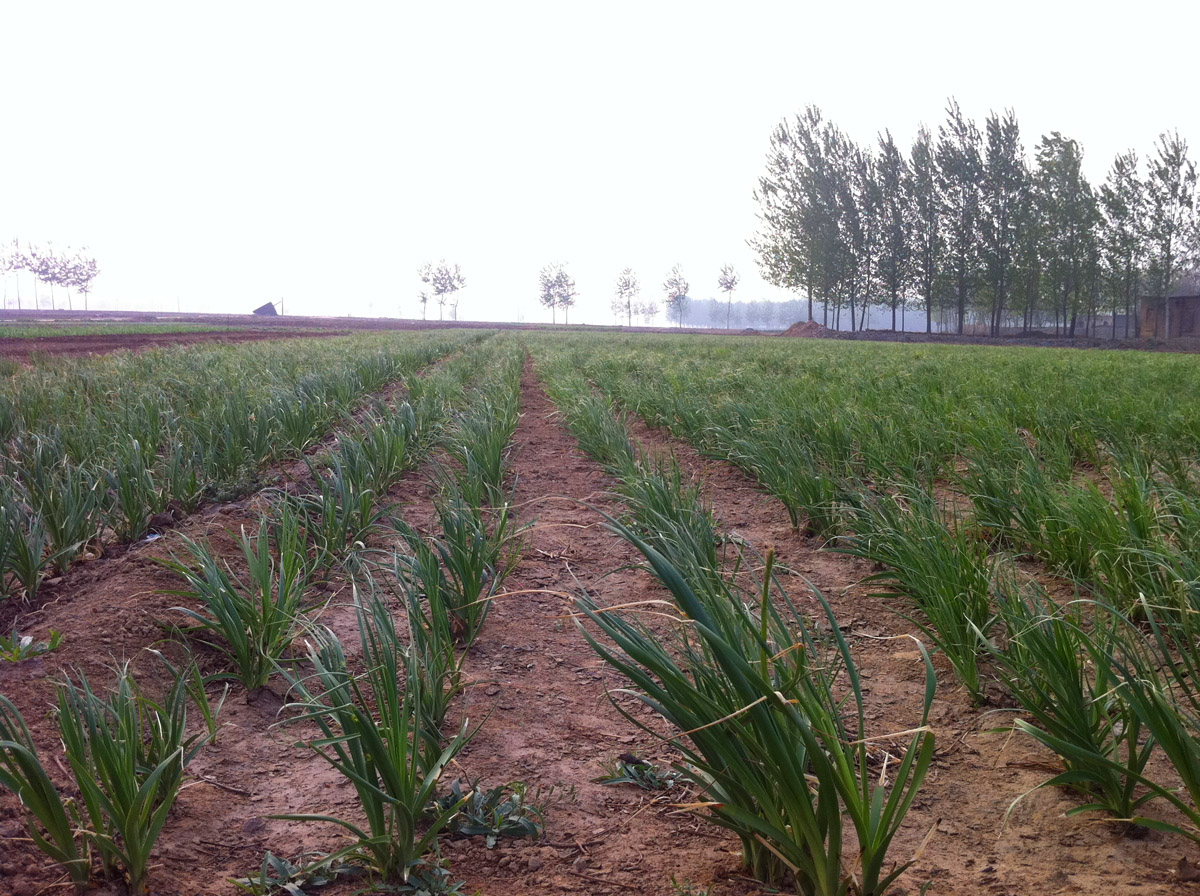
It is mind boggling to think of processing herbs this way, to think of working this way. Human rights is ever an issue with China and surely these are repetitious tasks but it seems Mayway is a good employer. They pay good wages, the working conditions are excellent, and they have regular breaks, lunch provided and an 8 hour working day.
On from washing, cleaning and slicing was frying and dry frying which allows the herbs to be processed as is appropriate. From receiving the herb to vacuum sealing and nitrogen bagging an herb should be 3-4 days. The drying process depends on the herb, it can be dried on a conveyor from 20-90 minutes. Herbs can be dried in a heat cabinet or if the microbial testing suggests a high load they will be “super dried” at a high heat to reduce the microbes. There is further processing and sorting. It may be fan sorting or machine sorting or, as we saw, individual workers hand sorting Bai Zi Ren, for example rejecting individual grains based on colour and shape.
Next for raw herbs is packaging. People with machines work to weigh each bag, seal it, then remove the air, double seal in nitrogen and box up for transportation to the UK. Another stream of herbs is for domestic distribution and another for internal processing into raw herbs, raw powders, concentrated powders and granules. The packaging we saw was into 10g bags of Dang Gui for distribution in domestic hospitals.
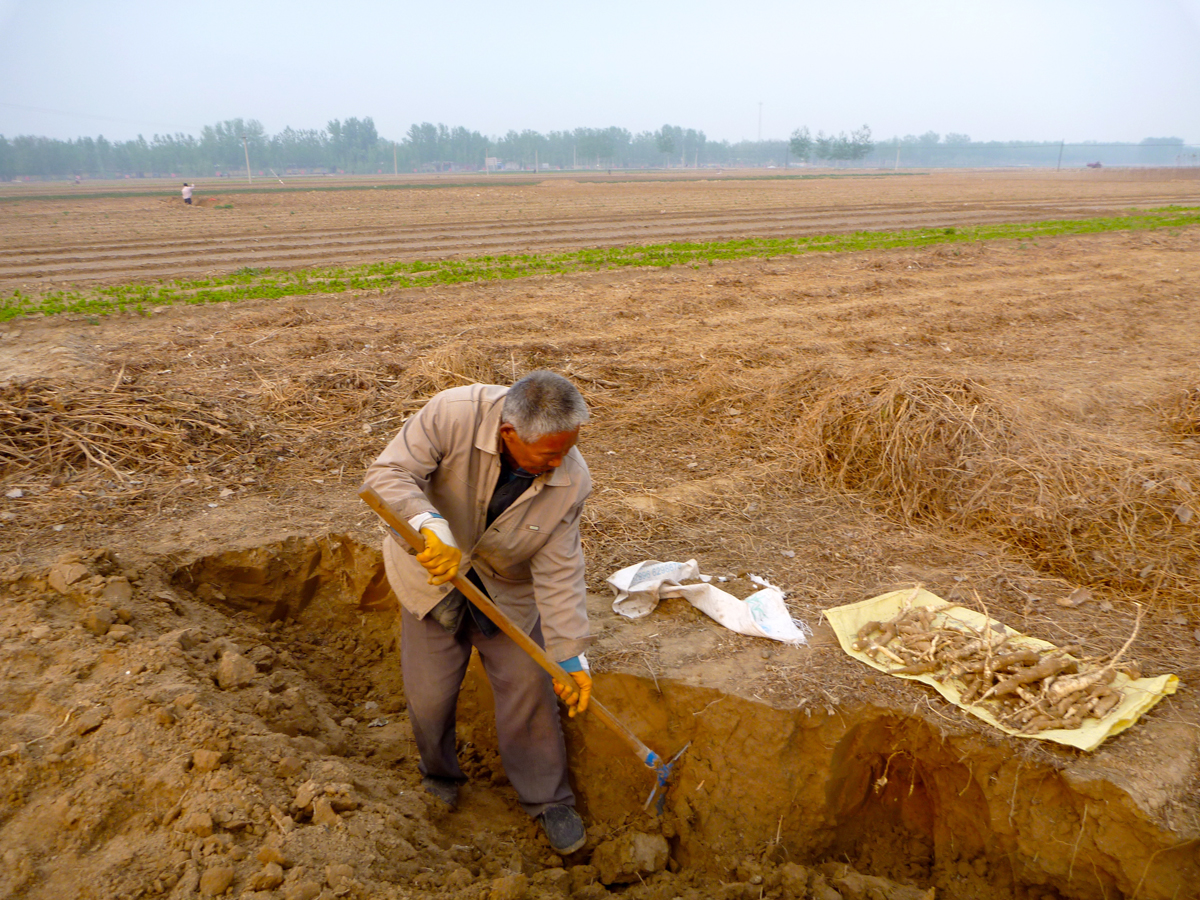
Because facilities in Anguo were not up to accommodating a tour of our size, we travelled about an hour back towards Beijing to Baoding for accommodation in the solar capital of China to an entirely solar run, stunning hotel. We ate well, drank a little and rested our weary well-filled minds.
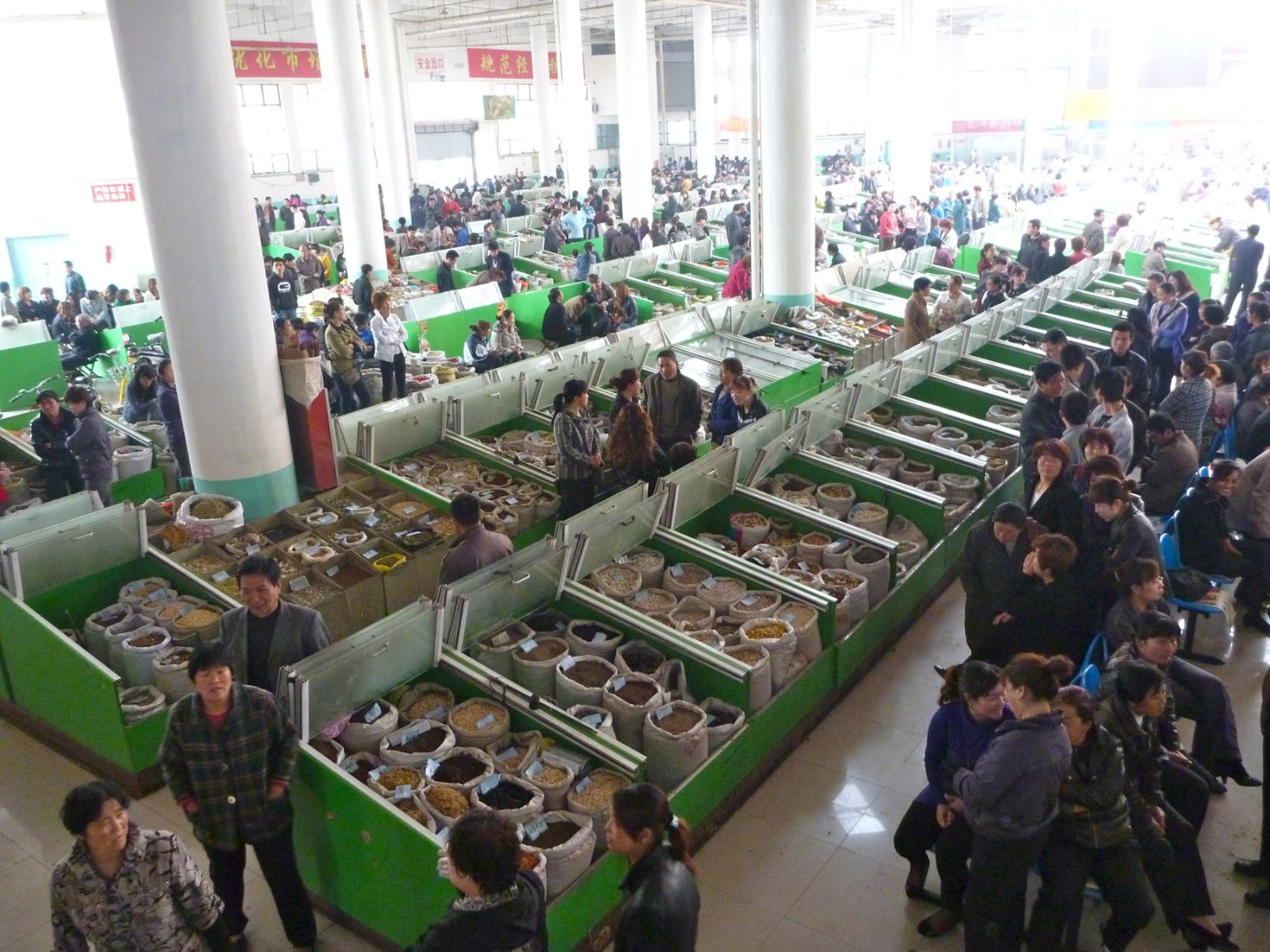
There were ants, worms, scorpions, sea horses and some very very cool ‘shrooms. There were some I am not sure what, one amongst those was the penis and testicles of deer. Suffice to say we all had a ball; people appearing at the end of our time in there with cinnabar and pearls... all of us heeding the warning that customs would not look kindly on any indiscretion of the animal/plant type.
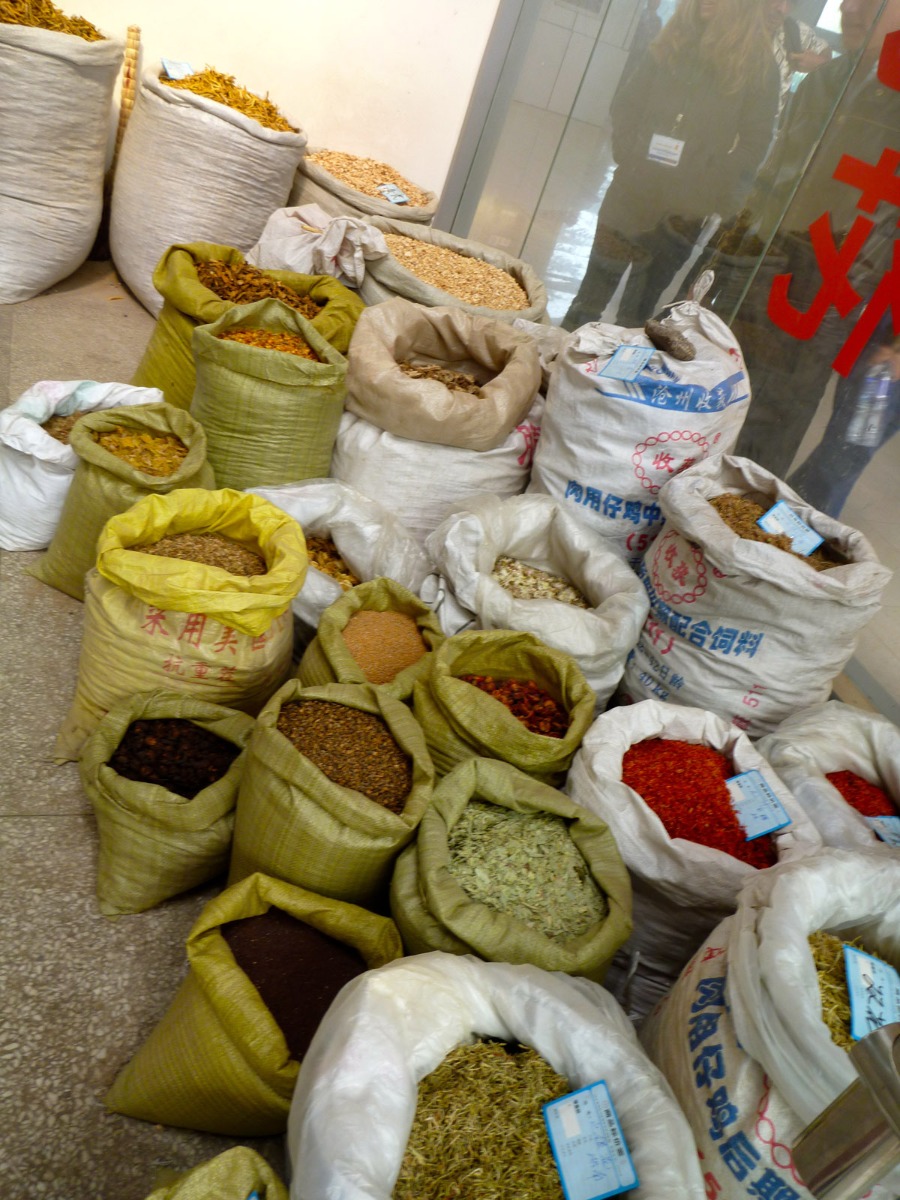 On we went to the museum of TCM which, unsurprisingly, was more informative to the few who read Chinese but of interest to us all. Who can resist the bronze points man? Next was the Medicine God Temple. A place to pray: to help us heal those we treat; to give thanks for the tools we have; for knowledge; for compassion? And who knows what everyone else asked for. Apparently a military healer healed a princess and so when he died the father of the princess, an Emperor, gave him god status and this is his temple. It was a beautiful and peaceful place, a wonderful contrast to the bustle of the market.
On we went to the museum of TCM which, unsurprisingly, was more informative to the few who read Chinese but of interest to us all. Who can resist the bronze points man? Next was the Medicine God Temple. A place to pray: to help us heal those we treat; to give thanks for the tools we have; for knowledge; for compassion? And who knows what everyone else asked for. Apparently a military healer healed a princess and so when he died the father of the princess, an Emperor, gave him god status and this is his temple. It was a beautiful and peaceful place, a wonderful contrast to the bustle of the market.
After a medicinally delicious lunch with Gou Qi Zi, Sheng Di Huang, and Bai Guo to name my favorites, we went back to the factory and toured the quality control and extract powder making facilities. Skye Sturgeon the Quality Control manager took us through the labs showing us the various stages of testing for everything from bacteria, pesticides and heavy metals to identification, using a range of tools predominately referring back to the most current Peoples Republic of China Pharmacopoeia. Testing includes on-farm organoleptic testing through HPLC to atomic absorption tests.
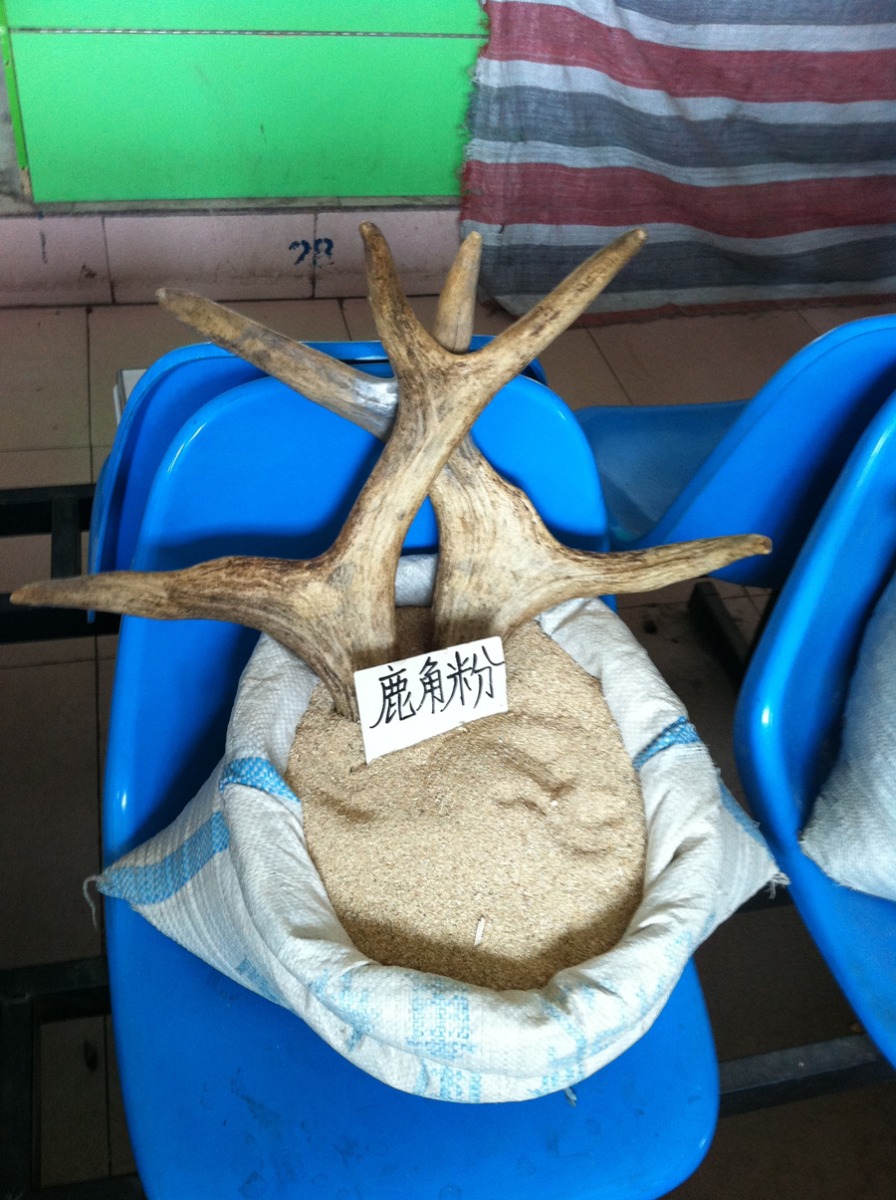
Food and sleep and food again; bus delayed until later in the day for our return to Beijing we continued our education. More formal, lectures, but so inspiring. Our own, and by that I mean UK, Ken Lloyd talked about herbal substitution. He made the US practitioners feel privileged in their access to the materia medica but demonstrated clearly that this art has been needed from the time of the warring states to any foreseeable future as, from government to supply chain to extinction; we may be required to implement these skills.
Skye talked about powders and the distinction between a powder concentrate and concentrated powders. Would need a whole article in itself to do justice, but he explained misconceptions on labeling and dosage. As with all good lectures determined to pursue knowledge, he ended with the lines expressing how much more we need to know.
Yvonne finished up with taking us through Good Agricultural Practices as it is implemented in China. A government trained inspector who consults for Mayway wrote a report that Yvonne shared. The details transmitted dealt with the minutiae of how an herb is planted, cut, shaded or harvested. What fertilizer should be used and when and how it should be watered. Research is in place to produce evidence based best practice.
Pest management was the most surprising aspect. A committee is formed who evaluate the threat of different species and come up with a national plan and educate the farmers as to what action should be taken at what time to combat the pests. This may be pesticides but it could be encouraging birds, introducing fungus or using light or sound. I must honor Teo Potts from Mayway USA, who at the end of this lecture, in response to a beautifully evocative question about the heart of Chinese medicine had us all near tears. He expressed how much being here with the people who grow and manufacture the herbs had meant to him and how they show the heart of the medicine in how much love they have for what they do.
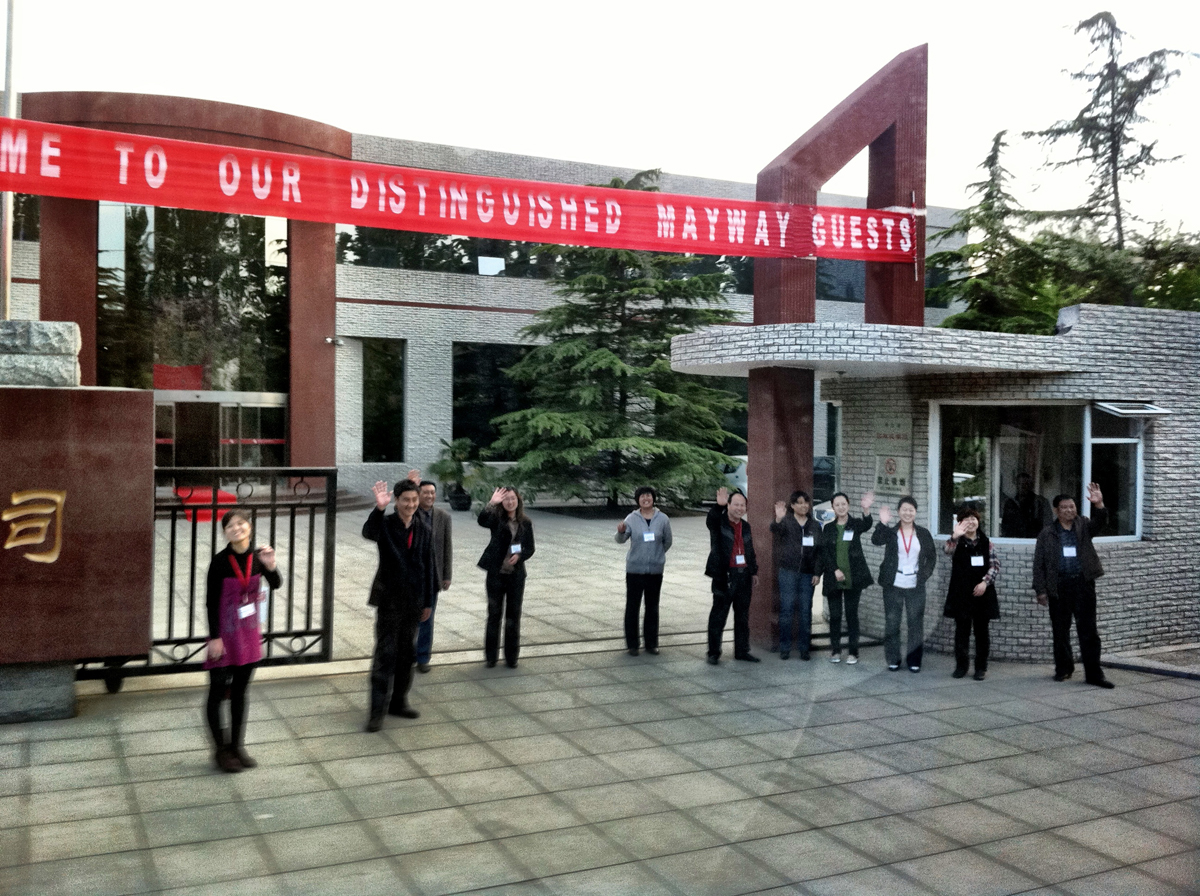
Thanks to all the amazing people who were on the trip as well, I am privileged to have been among such an inspired, educated and passionate group of people.
